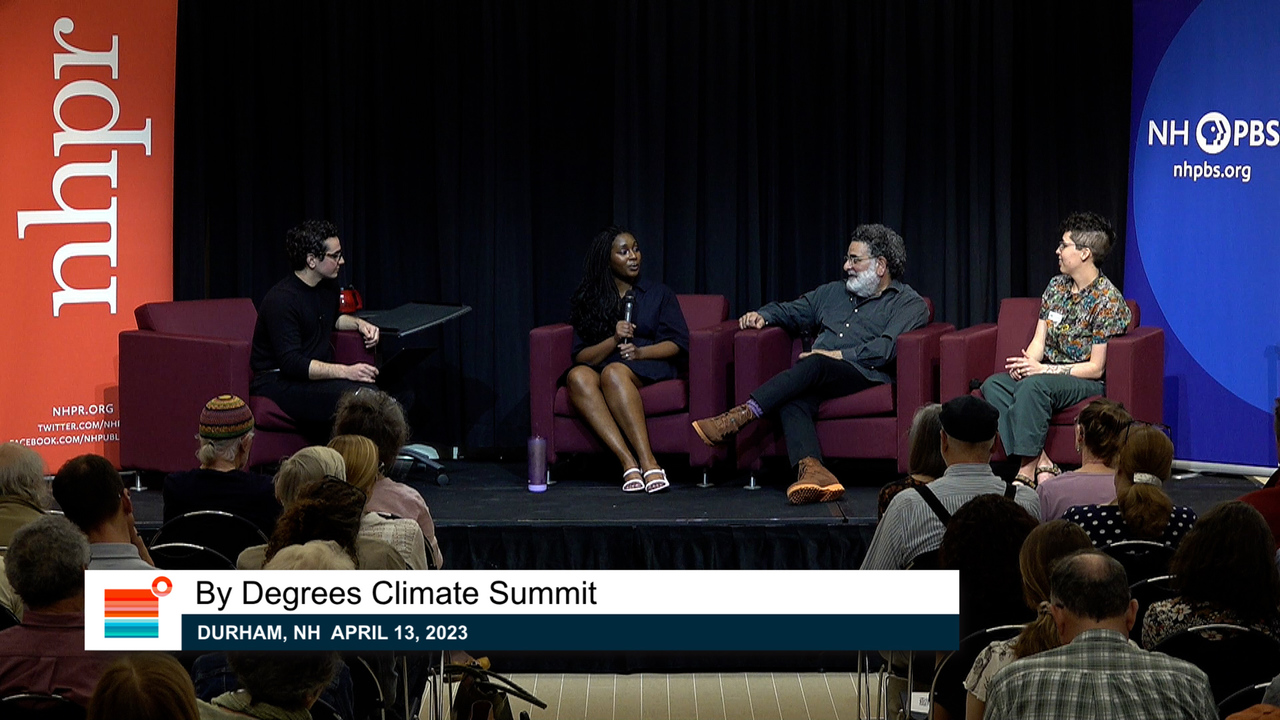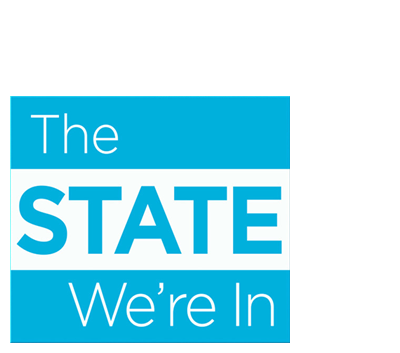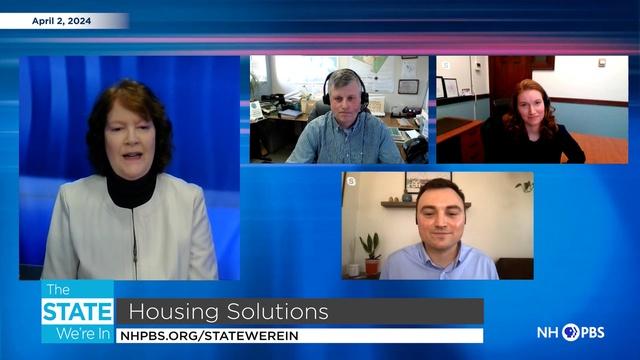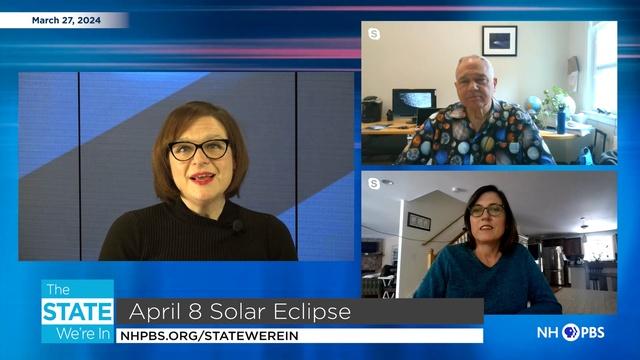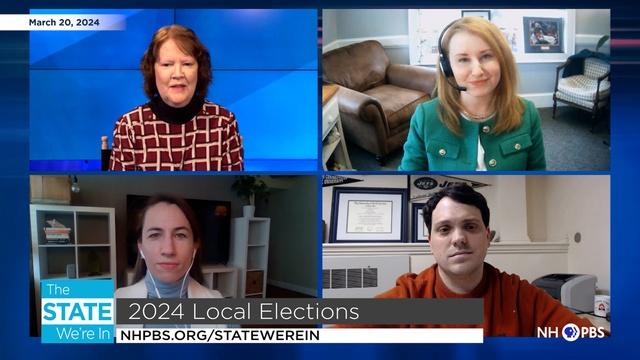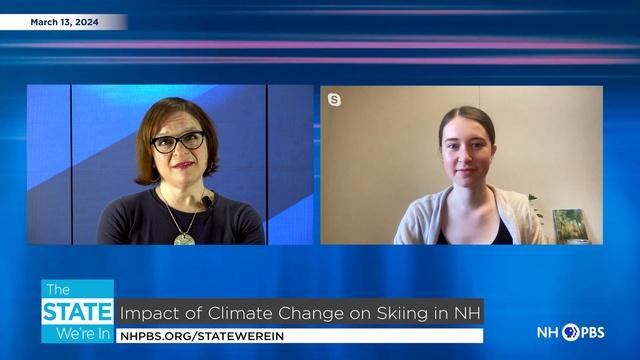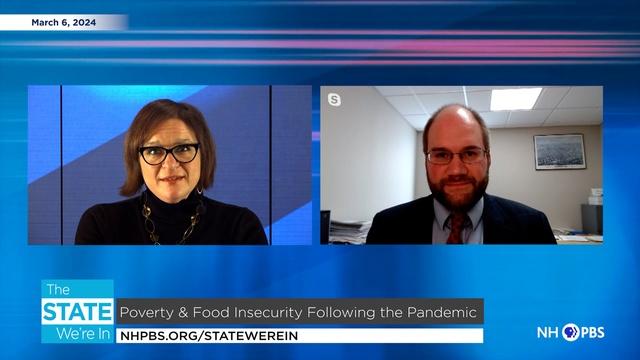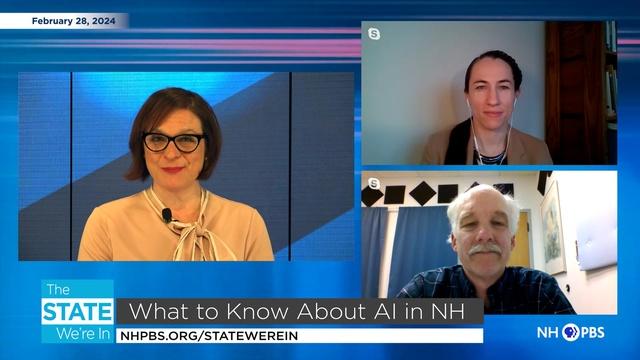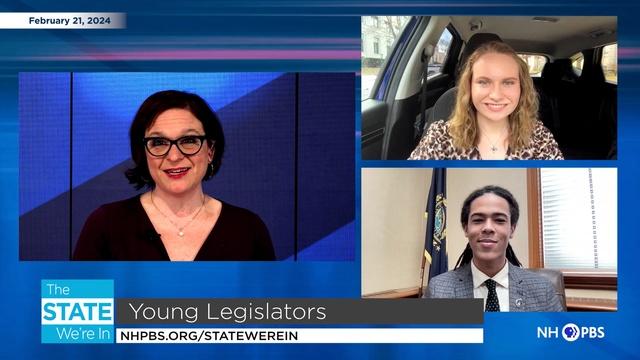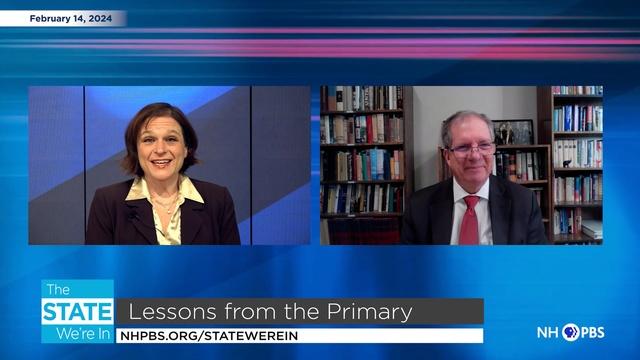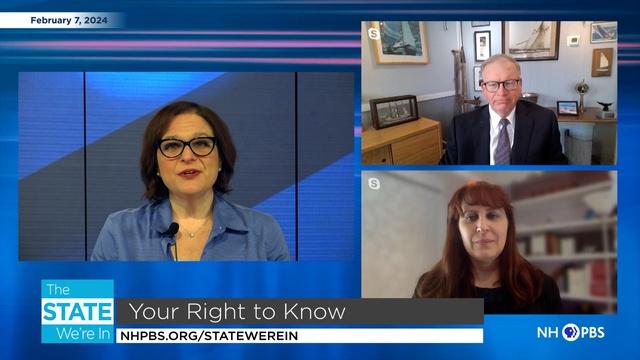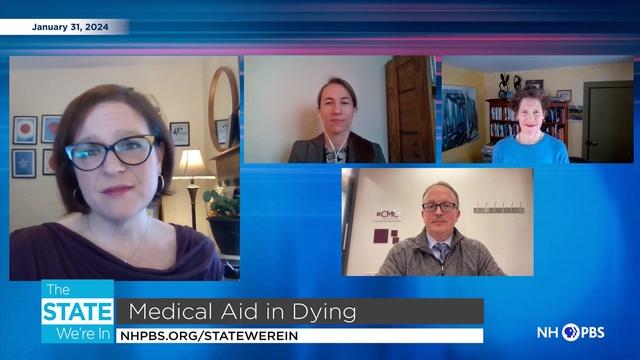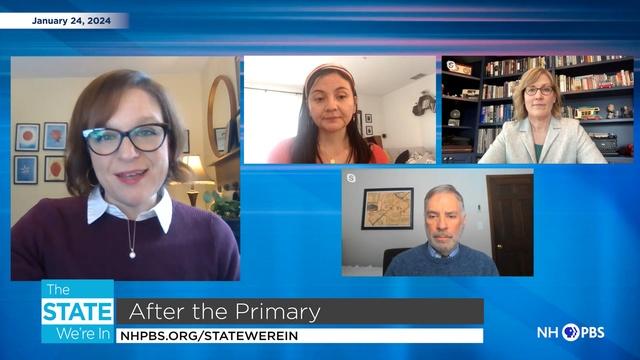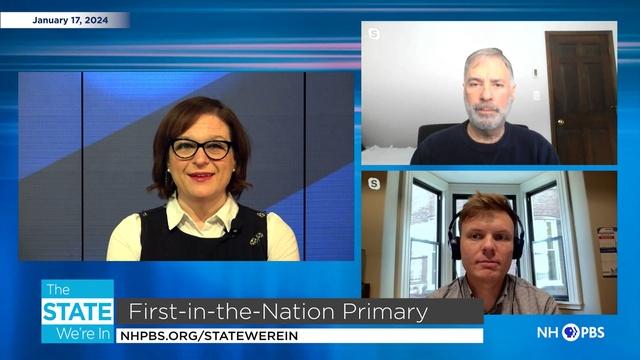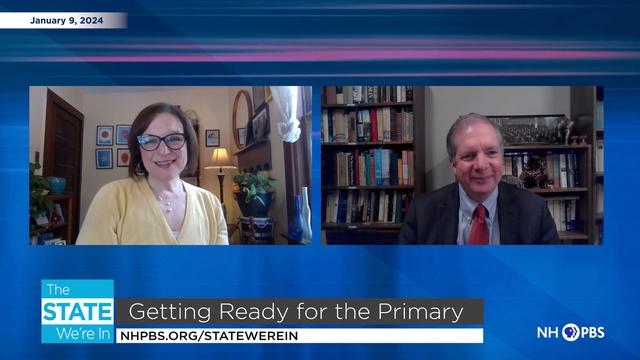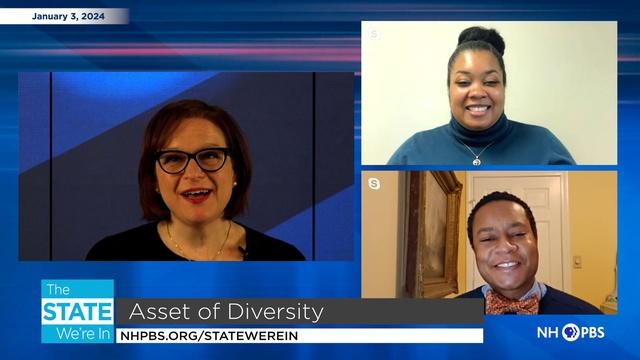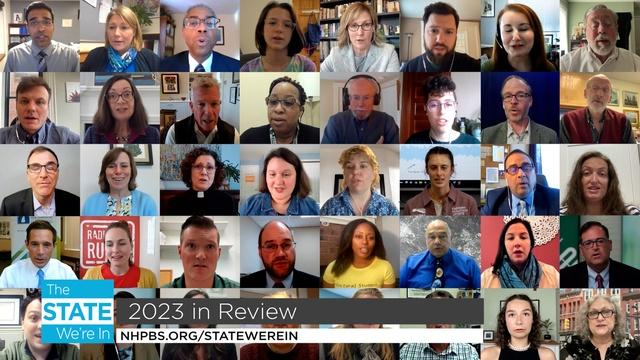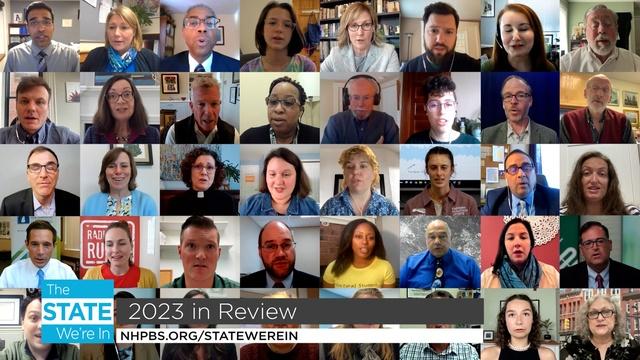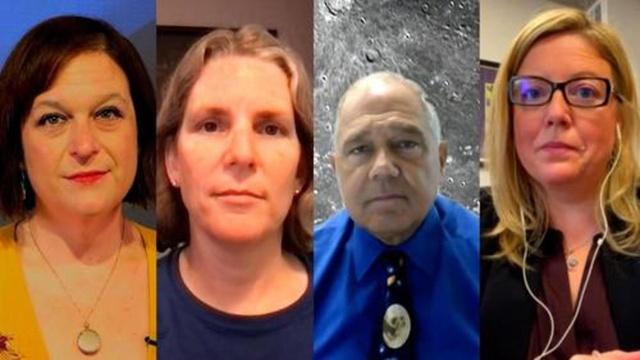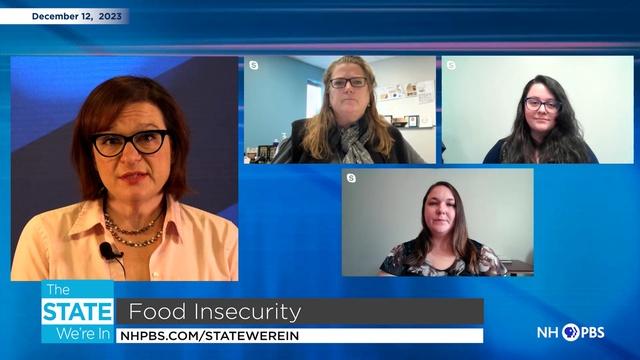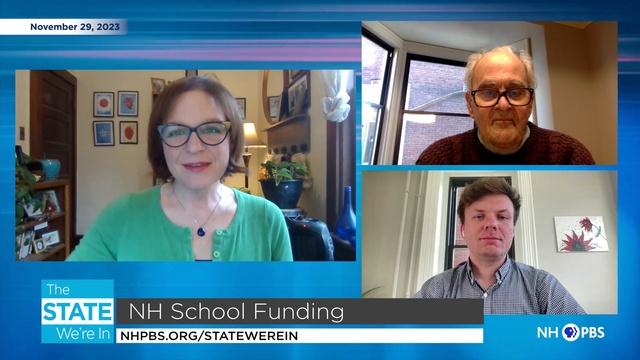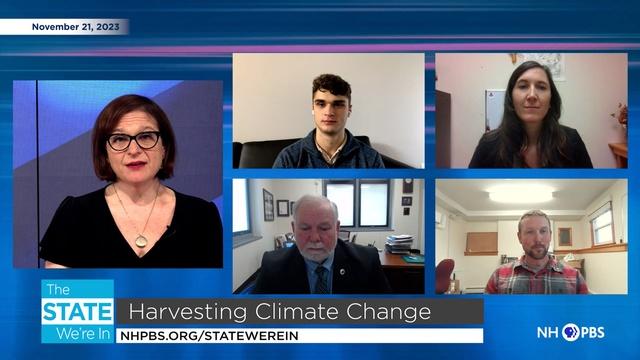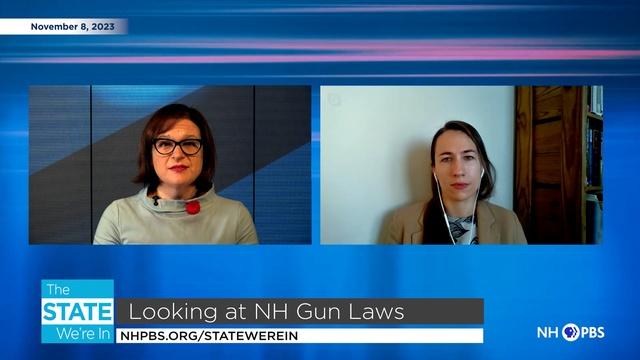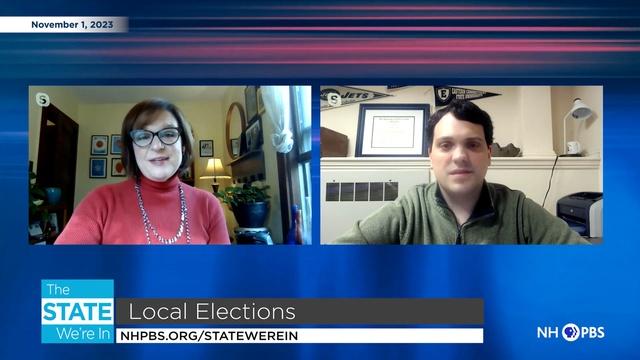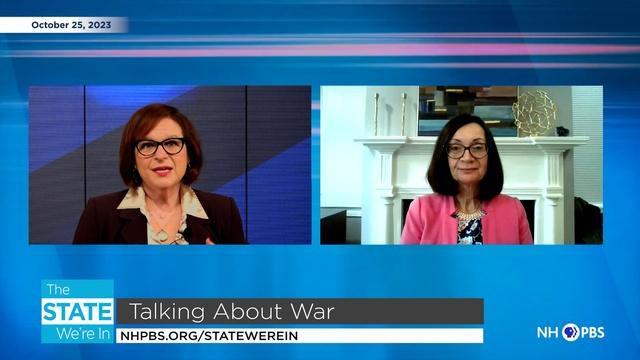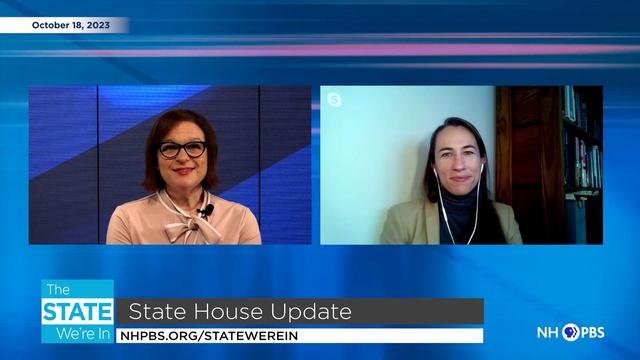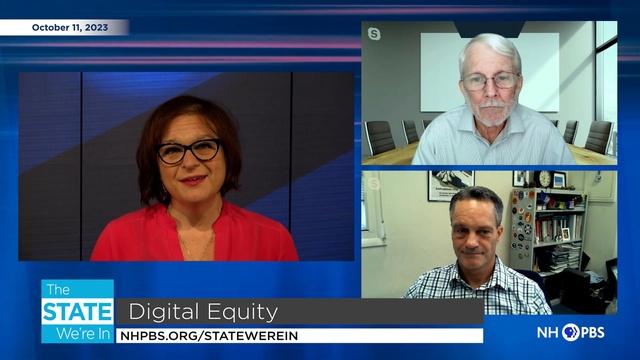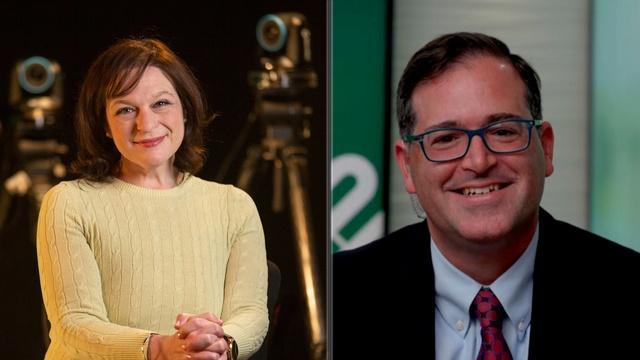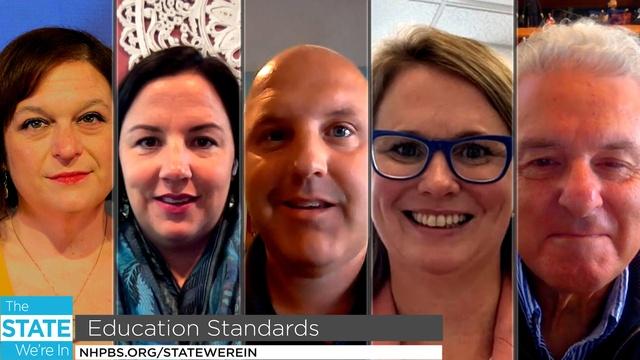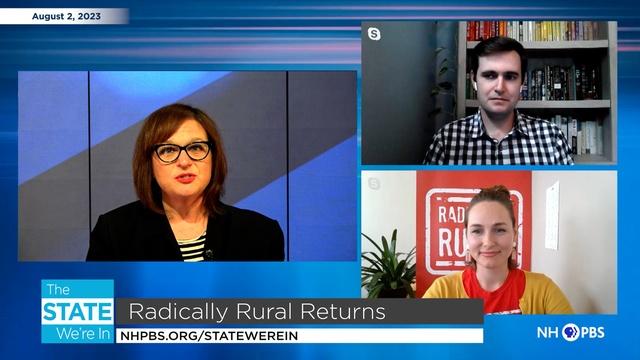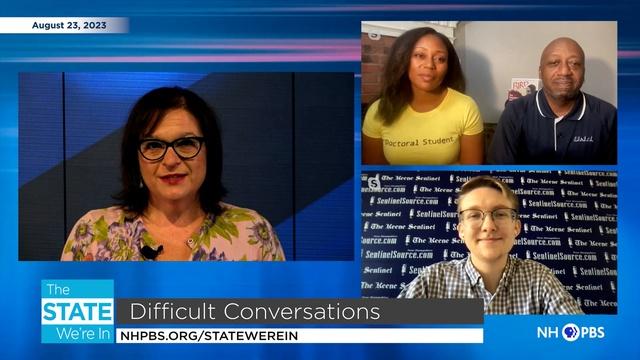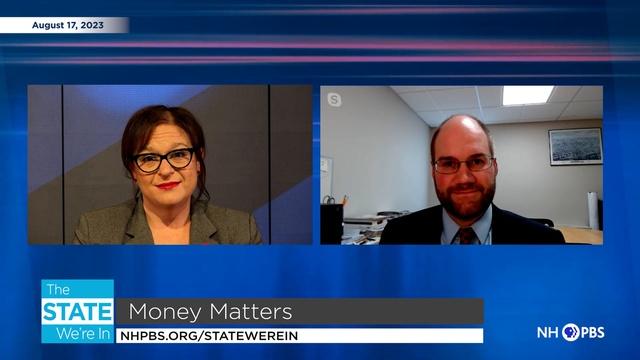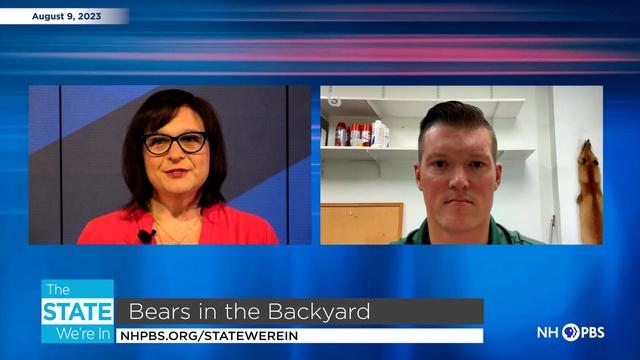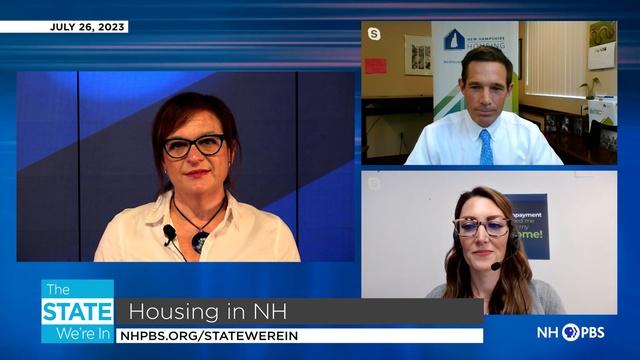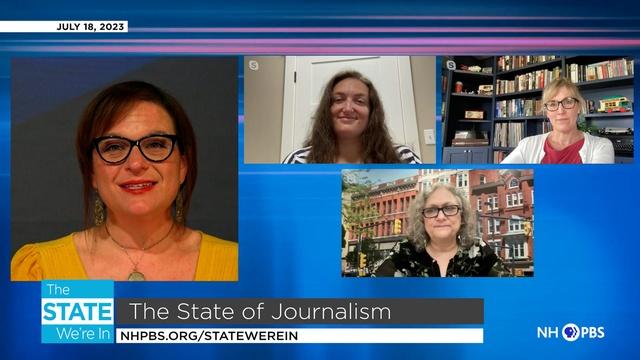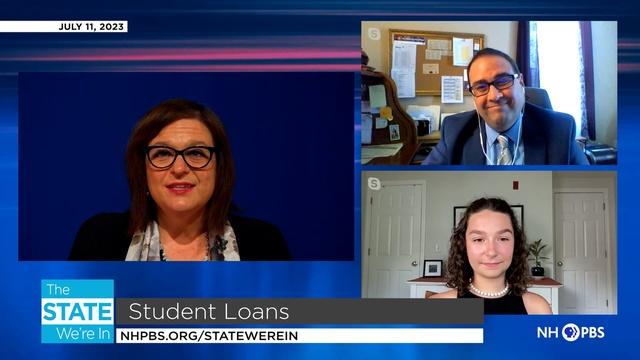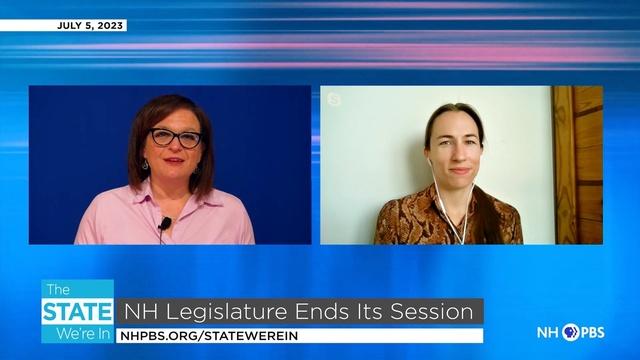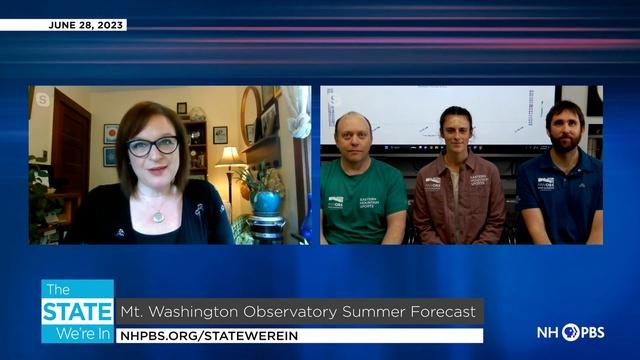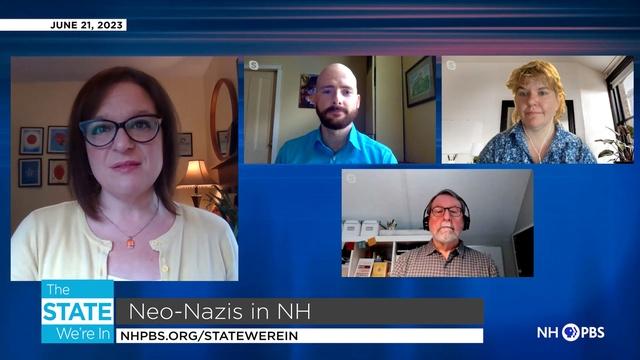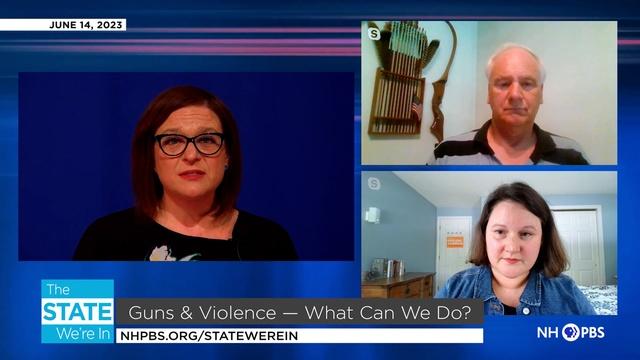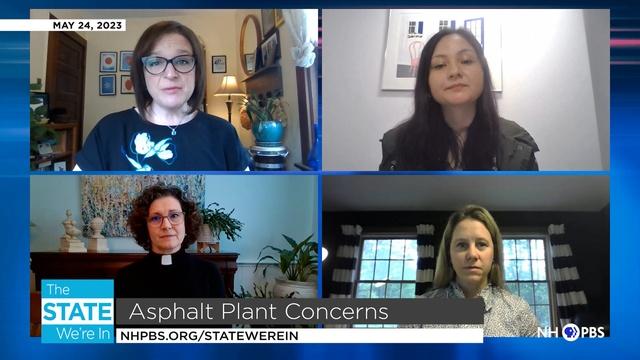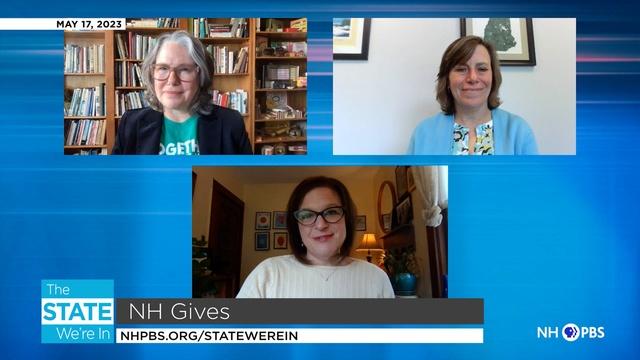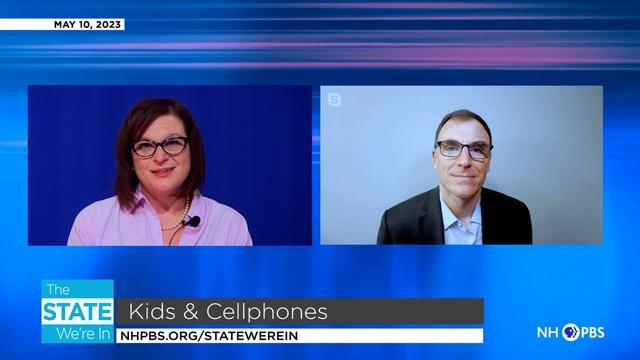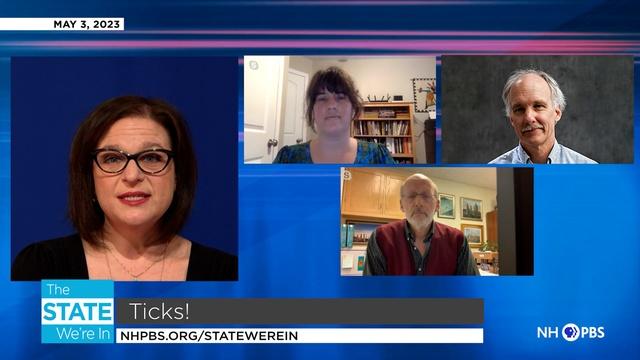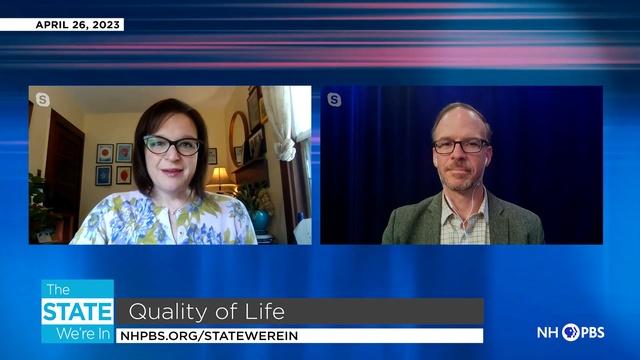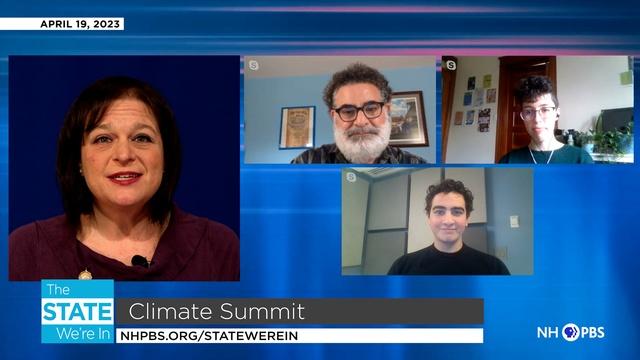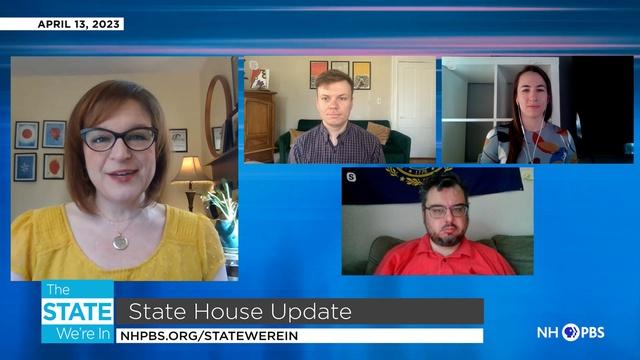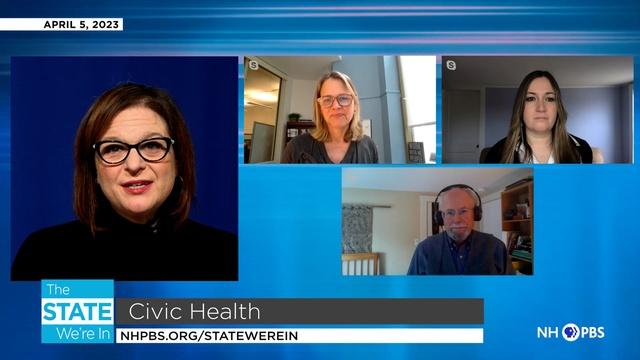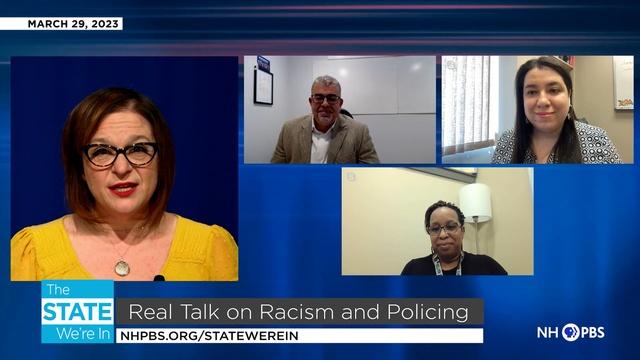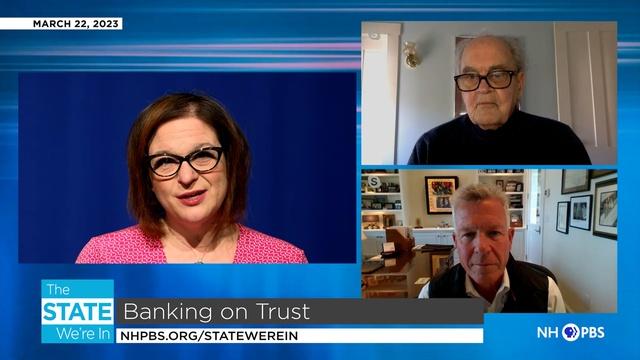By Degrees Climate Summit
Exploring Solutions for New Hampshire's Warming Climate
By Rosemary Ford, Melanie Matts
NHPBS
By Degrees Climate Summit Broadcast
Spring is a time of rebirth and renewal — and the season seems to arrive a little earlier in New Hampshire every year. A look at temperatures recorded since 1900 by the National Oceanic and Atmospheric Administration shows New England is warming faster than any other region of the world. Winters are shorter, summers are longer and these shifts in temperature are expected to wreak havoc on the New England economy, ecology and cultural heritage. The question is – what can be done?
NHPR recently partnered with NHPBS to host the By Degrees Climate Summit, which explored the role of community action in addressing climate change. On this week’s episode of The State We’re In, we hear from the Summit’s host Mara Hoplamazian, a NHPR climate reporter, and panelists Hayley Jones, the Vermont and New Hampshire State Director at Slingshot, and Aziz Dehkan, Executive Director of Connecticut Roundtable on Climate and Jobs.
Melanie Plenda:
Mara, can you tell us about your work at NHPR and what you do as a climate reporter? What are some of the main issues you’re covering?
Mara Hoplamazian:
I run NHPR’s climate reporting project called By Degrees, through which we're really hoping to tell stories about how climate change is showing up in all of our everyday lives – how people are grappling with the challenges of hotter heat waves, shorter winters, more intense storms, and how people are exploring solutions. I'm always trying to make sure the scientific and historical context of climate change shows up in those stories alongside people's on-the-ground experience of climate change in New Hampshire this spring. There are new ways for people to purchase electricity in the state that could become a big climate solution, so I'm following that. And with spring coming, I'm also on the lookout for stories about how this season – “mud season” – is being affected by climate change.
Melanie Plenda:
Can you tell us a bit about how the summit came together? Why the focus on climate solutions?
Mara Hoplamazian:
Our production manager and I have been talking about the idea of a regional climate summit for leaders on climate change for a long time. We wanted our first to focus on solutions – part of that was a lot of the feedback we got from listeners, as people want to hear more about climate solutions. I also think there's a big gap in how most of us think about how our lives might change as we respond to climate change. Often I find myself thinking about what conveniences I might need to give up, what sacrifices I might need to make. But there's a totally different way to think about that, which is what I think people like our panelists are really good at showing – that addressing climate change can actually help us build a world that's easier to live in, that has better transportation, housing, jobs, and fun. So we wanted to talk about those kinds of solutions and how addressing climate change can help us address other parts of the world that we want to dream bigger about or change in other ways.
Melanie Plenda:
Hayley and Aziz. Tell us about your work and why you joined the panel for the summit.
Hayley Jones:
I am the Vermont and New Hampshire state director with an organization called Slingshot, which works alongside communities most impacted by environmental threats to take aim at polluters and build community power. We work with folks who are on the frontlines of climate and environmental health problems, and we train folks up with everything they need to make changes in their neighborhoods and beyond. I was so excited about this panel because I've really admired NHPR’s work and Mara’s work for a long time, and I felt the panel really aligned with our organizing vision, where we're talking not just about holding polluters accountable, but about joy and community and humility and passion and bringing solutions from the bottom up.
Aziz Dehkan:
I'm the executive director of the Connecticut Roundtable on climate and jobs, and our goal is to find a just transition from fossil fuel jobs to renewables. We work with the trades and with interfaith social justice organizations to find that pathway. And we’ve passed a couple of bills: an offshore wind bill a few years ago, and two years ago a bill that puts project labor agreements onto large renewable projects. So that's the work that we do, and we hope that it spreads throughout the region and throughout the country.
Melanie Plenda:
What were your takeaways from the summit? What message do you hope the people who see the summit get?
Mara Hoplamazian:
What I really heard from each of our panelists is that effective climate solutions start with communication and collaboration – listening to people who've been most affected by climate change, and who could be most affected by the transitions in our energy system and all the other systems we are transitioning to. I really hope people who watch this event take away some hopefulness around addressing climate change, and that they start conversations in their own neighborhoods and cities about climate change, and the solutions that are already underway in New Hampshire and across New England. And I'm really hoping that my reporting can also contribute to some of those conversations too.
Hayley Jones:
My major takeaway is that we already have a lot, if not all, of the solutions to the climate crisis. Whether we're talking about community energy programs, or the transition to more green jobs, or something like segregated waste collection mandates – we have all those solutions, and we just need to be listening to people who are talking about them and putting them in action. I think a message for folks who were at the panel is that individual solutions are a great start, we can and should be doing all that we can; but what's really important is joining forces with folks in your neighborhood, in your town, in your city, in your state, even regionally, to be making change. Because it's only all together that we're gonna make this work.
Aziz Dehkan:
I've got to echo what my two panelists said, Hayley uses the word community, often and regularly, and that's what I take away. I'm a community organizer, I've worked with community gardens – you could call them gardens or me an organizer, but without the word “community” I don't think this works. So the takeaway was giving hope, making sure people know there are pathways to solutions. It's not always easy, but it should be fun. Pleasure activism is real.
Melanie Plenda:
What are the most pressing climate change concerns, especially here in New Hampshire?
Hayley Jones:
I don't want to sound like a broken record, but so much of the work I do with community groups is around the intersection of waste and climate. After working in New Hampshire for four years, that's what I'm most worried about. Whether we're talking about off-gassing of methane and other greenhouse gasses from landfills, or we're talking about the expansion of landfill projects, or if we're talking about high-heat incineration. A lot of the folks I work with are saying state and local governments in New Hampshire really need to get ahead of this surge of so-called green waste technologies, because when we're talking about chemical recycling in the United States, the main form of chemical recycling is where you take plastic, you burn it, you turn it into fuels, and you burn them. And so we're talking about a waste problem, a climate problem, and also a real public health problem.
Aziz Dehkan:
The roundtable keeps looking at jobs. We need to find that just transition from fossil fuels to renewable jobs. If we can’t show that that works, we're in trouble. But we can and we know that they're out there. We know there are offshore wind jobs, there are large solar farms being built. Also part of what we want to try to do is look at this through the lens of equity and through the lens of what structural racism has done, not just to New England and Connecticut, but throughout the country. So those are our focus points: jobs, breaking down structural racism, and looking at jobs through the lens of equity.
Mara Hoplamazian:
As a reporter, I think what you consider the most pressing issue really depends on where you stand. So I don't know if I have a full answer here. But I think New Hampshire experiences similar concerns as a lot of other parts of the country: hotter heat waves, shorter winters, potential for stronger storms, conflicts that come with the energy transition. It really depends on what your experience of the world is for which of those will become the most pressing concern for you. But I think seeing these things as compound threats instead of individual threats – threats that are sort of all part of the same ecosystem – is really important.
Melanie Plenda:
Some people may want to help but don’t know where to start. What steps can individuals take to learn more and/or take action to combat climate change?
Aziz Dehkan:
Our answers seem to all collide into one piece, and that is to start from the bottom up. Join your local town environmental committee – start from there. Tip O'Neill used to say all politics is local, and I think this still remains to be the truth. We can join forces to create change, we can't do it alone. There are certain places where an individual can certainly make a difference, but I think the real differences come when we work together. My suggestion has always been and continues to be: start at the bottom and work your way up. Top down doesn't seem to work, but grassroots always sprout. Join your environmental committee, join other like-minded groups. That's where I would go, that's how I would start, and just never give up. There's always opportunities out there.
Hayley Jones:
At Slingshot we only really get into advocacy work when that’s a pathway we've worked with a community group and said, this is a way we could achieve our goals. So I would not call myself an advocate, definitely a community organizer. But I think when we're talking about individuals taking action on climate change, the fossil fuel and waste industries really, really want people to believe the myth that individual action will solve everything, because that takes the spotlight off of big polluters and big drivers of climate change. It puts it on the individual. So my personal and professional philosophy is that it's great to do individual things, like eating less meat, or taking public transportation, or biking/walking more if that's something that's accessible to you. But it's so important to be pairing those individual actions with researching what's out there, getting involved with local groups, or getting involved in electoral work if that's something that interests you. Really pairing up those individual actions with bigger, more structural change-making.
Melanie Plenda:
How does the conversation continue from here? What are the next steps? Are there more summits in the future?
Mara Hoplamazian:
Right now I've got a lot of reporting to do. We're really focused on just making sure that Granite Staters are connected with climate news and information. People can always write into voices@nhpr.org or directly to me with questions or comments, and we'll be in touch about future events.
The State We’re in a weekly digital public affairs show is produced by NH PBS and The Marlin Fitzwater Center for Communications. It is shared with partners in the Granite State News Collaborative, of which both organizations are members
Watch Online
Educational Standards
A look at proposed revisions to the state's educational standards, also known as 306s.
Return to the
The State We're In
Main Page
Support for The State We're In is provided by New Hampshire Charitable Foundation, Eversource and Hitchiner Manufacturing Co., Inc.
The State We're In is produced in partnership with the Granite State News Collaborative and the students and staff of the Marlin Fitzwater Center for Communication at Franklin Pierce Unversity in Rindge, NH.
Housing Solutions
Host Judi Currie speaks with community planners and affordable housing advocates.
April 8 Solar Eclipse
Host Melanie Plenda talks about the upcoming eclipse with guests.
2024 Local Elections
Host Judi Currie speaks with several experts on the key issues surrounding the election.
Impact of Climate Change on Skiing in NH
Melanie Plenda speaks with freelance journalist Beatrice Burack about her series.
Poverty & Food Insecurity Following the Pandemic
Poverty and food insecurity rates here before, during and after the pandemic.
What to Know About AI in NH
Host Melanie Plenda discusses the ins and outs of artificial intelligence.
Young Legislators
State Reps. Jonah Wheeler and Valerie McDonnell join host Melanie Plenda.
Lessons from the Primary
Secretary of State David Scanlon discusses the New Hampshire primary.
Your Right to Know
We discuss HB 1002, which would allow public bodies and agencies to charge up to $25/hr.
Medical Aid in Dying
The NH House Judiciary Committee will hold a hearing on HB1283.
After the Primary
A discussion about the NH Primary results.
First-in-the-Nation Primary
We talk to veteran reporters about the upcoming New Hampshire Primary.
Getting Ready for the Primary
The New Hampshire presidential primary will take place on January 23rd.
Asset of Diversity
Members of the Business Alliance for People of Color discuss how diversity can be an asset
2023 - Compelling Quotes
The best quotes from 2023.
2023 in Review
A look back at "The State We're In."
Nature's Super Bowl
Learn about two upcoming eclipses with prime viewing spots in New Hampshire.
Food Insecurity
Staffers from the NH Food Bank discuss food insecurity in New Hampshire.
NH School Funding
Learn about the recent ruling that could change the way public schools are funded in NH.
Harvesting Climate Change
Melanie Plenda speaks with local agricultural experts about climate change.
Looking at NH Gun Laws
New Hampshire's gun control laws and preventing a mass shooting.
Local Elections
The importance of local elections and how to prepare for them.
Talking About War
How do you talk to kids about gun violence and war?
State House Update
Citizens Count's Anna Brown discusses some of the bills the state Legislature will tackle.
Digital Equity
Bridging the digital divide in New Hampshire.
Fall Health Outlook
Infectious disease expert Dr. Michael Calderwood talks about the fall health outlook.
Education Standards
A look a proposed revisions to the state's educational standards, also known as 306s.
Radically Rural Returns
The popular small town summit is back for a sixth installment.
Difficult Conversations
Different approaches to the same goal.
Money Matters
More New Hampshire residents are finding it difficult to afford everyday expenses.
Bears in the backyard
More bears are showing up in backyards and social media feeds.
Housing in NH
The 2023 NH Residential Rental Cost Survey Report and what it means for NH residents.
The State of Journalism
Host Melanie Plenda talks through the state of journalism in New Hampshire.
Student Loans
Host Melanie Plenda talks with Financial Aid Professional and a recent grad about debt.
NH Legislature ends its session
Host Melanie Plenda talks with Citizens Count's Anna Brown.
Mt. Washington Observatory Summer Forecast
Host Melanie Plenda speaks with scientists from the Mount Washington Observatory.
Neo-Nazis in NH
Host Melanie Plenda talks about combating hate and misinformation around a drag story hour
Guns & Violence -- What can we do?
Host Melanie Plenda looks for common ground from two perspectives.
Asphalt Plant Concerns
Hear concerns about a proposed asphalt plant in Nashua, which has residents worried.
NH Gives
We discuss NH Givens, a day of fundraising for hundreds of New Hampshire nonprofits.
Kids & Cellphones
How young is too young for a cellphone?
Ticks!
Find out what's going on with the tick population in the Granite State.
NH Quality of Life Survey
New Stay Work Play quality of life survey explores satisfaction among young people.
By Degrees Climate Summit
Explore highlights and key takeaways from the April 2023 By Degrees Climate Summit.
State House Update
What's happening in Concord this session?
Civic Health
How robust is our civic health in New Hampshire?
Real Talk on Racism and Policing
We discuss a recent community conversation.
Banking on Trust
Two financial experts discuss what's happening in the banking industry.
